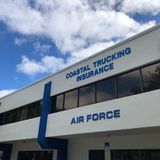A Guide To Securing Adequate Insurance for A New Trucking Enterprise in Ohio!
Starting a new venture in the trucking industry in Ohio requires careful planning, and obtaining the right trucking insurance is a critical aspect of this process. Trucking insurance provides essential coverage and protection for the business, drivers, and cargo, safeguarding against potential financial losses and liabilities. Following steps will help obtain right new venture trucking insurance Ohio:
1. Assess Insurance Needs: Before purchasing insurance, the owners should assess the specific insurance needs of the new venture based on the type of trucking operations, the size of the fleet (if applicable), the types of cargo, and any specialized services on offer.
2. Find a Reputable Insurance Provider: Truck operators should look for insurance providers with experience in the trucking industry and a strong track record of serving new ventures. Working with an experienced insurance provider can ensure the right coverage and expert guidance tailored to the business's unique needs.
3. Research Coverage Options: Trucking business owners should familiarize themselves with the various types of insurance coverage available. Key coverages include liability insurance, cargo insurance, physical damage coverage, bobtail insurance, and more. Businesses should consult an insurance agent to determine the optimal coverage mix for their new venture.
4. Obtain the Minimum Required Insurance: New venture trucking Michigan or Ohio, should ensure their new venture complies with state and federal insurance requirements. They must meet the state's insurance requirements for intrastate trucking operations, and if they plan to engage in interstate commerce, they must also meet the federal FMCSA insurance requirements.
5. Liability Limits: Trucking enterprises must determine the appropriate liability limits for old or new venture trucking insurance Ohio based on the type of cargo and the size of their vehicles. Meeting the minimum required liability limits is essential for obtaining operating authority and maintaining compliance with regulatory agencies.
6. Cargo Insurance Considerations: Since businesses transport cargo on behalf of their clients, cargo insurance is critical. It protects the goods they carry and provides coverage in case of theft, damage, or loss during transit.
7. Work with an Insurance Agent: New venture trucking (Michigan or Ohio) should collaborate closely with an experienced insurance agent or broker who can guide them through obtaining trucking insurance. An agent familiar with the trucking industry can help find the best policies at competitive rates.
8. Consider Additional Coverages: Depending on the business's unique needs, new trucking businesses may explore additional coverages such as trailer interchange insurance, non-trucking liability insurance (bobtail insurance), or physical damage coverage to protect their trucks.
9. Secure Insurance Certificates: Trucking firms should obtain certificates of insurance from their insurance provider. These certificates serve as proof of coverage and may be required when contracting with clients or shippers.
10. Regular Review and Update: As the business grows and evolves, the owners should regularly review and update their coverage in new venture trucking insurance Ohio to ensure its adequacy to meet their expanding needs and compliance with any changes in state or federal regulations.
By following these steps, new ventures can start their trucking business confidently, securing proper insurance coverage to protect business and assets. However, they must work with a knowledgeable insurance professional to find the best solutions for new venture trucking insurance, Ohio.

.jpg)

.jpg)
Comments
Post a Comment